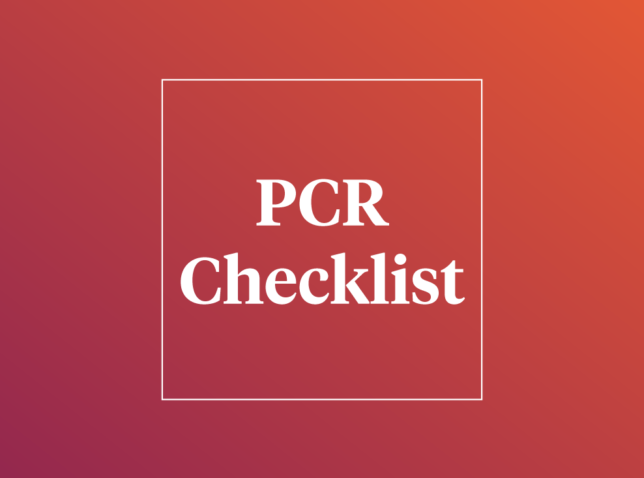Six Questions You Should Ask When Buying Term Life Insurance
There is a wide range of life insurance policies available, all intended to fit different needs. Today, I’d like to focus on term life insurance. Term life insurance is great for temporary coverage, whether you need a certain amount of death benefit for a short period of time, or because you’re just starting out and can’t afford as much permanent coverage as you need. It is good “starter life insurance,” where you can lock in your insurability now to get the death benefit you need and then, over time, convert to permanent insurance as your income rises.
For example, if you need $2 million of death benefit coverage, the premiums for a permanent life insurance policy may be outside your budget, depending on your situation, but premiums for a term policy will be generally less expensive. A good strategy might be to buy as much permanent insurance as you can, supplementing with term to reach the full $2 million in coverage. Or you could start with a $2 million term policy and then gradually convert it over to permanent policy, a bit at a time. For example you could convert maybe $200,000 of the coverage to permanent, so you have $1.8 million in the term policy and $200,000 of permanent. Then convert another $200,000 a few years later. The term coverage goes down, while the permanent goes up. You can convert coverage up to the same amount of the original term life policy.
One of the myths about term life insurance is that all term insurance is the same and that price is the only consideration in choosing a policy. That is not true, especially if you plan on converting any of the insurance to permanent life insurance. Here are six questions you should ask when buying term insurance:
How long is the conversion period?
This is critical. With some companies, you might only be able to convert during the first five years of a 10-year policy, or maybe the first 10 years of a 20 year term. No matter which policy you choose — 10-, 15- or a 20-year term policy — you want a policy that can be converted to permanent coverage throughout the entire term period.
What type of permanent policy is offered for conversions?
Many term policies allow you to convert, but some only allow it to a “special” permanent policy that is available on conversion. If you do a little digging, you may discover that this “special” conversion policy is actually more expensive than what you might be able to buy if you just applied for a totally new policy and went through the underwriting process again. Look for a term policy that can convert to any of the company’s currently sold products.
Can you convert all or part of the term policy?
Most companies offer the ability to convert term insurance to permanent, but it’s often limited, with some sort of ceiling on the total amount you can convert. Other companies might only allow you to do a full conversion of the term policy. Look for a policy that allows you to convert incrementally, up to the full amount of the term policy.
Can you get a credit for premiums paid for a term policy?
Many of the better companies will apply your last annual term premium towards the first premium of a permanent policy. In essence, you’re getting a one year credit for the premiums paid for your term policy. Usually the permanent policy is more expensive, so the credit doesn’t pay the full premium of the converted permanent policy, but it helps offsets part of it.
What riders are available?
Beyond the basic insurance, many companies offer “riders” with additional benefits. These might include accidental death, where you get a higher death benefit if you die in an accident, or perhaps coverage for children, which can also be converted to a permanent policy if desired. One popular rider is the disability waiver. If you are out of work for an extended period of time, often around four to six months, then the premiums will be waived by the insurance company while you are disabled. You can even get a disability waiver that will convert your policy into a permanent policy after three years of disability.
Not every company offers these riders and it’s important to note that there are additional costs with adding riders and may be subject to certain limitations. But, this is one area where not all term policies are the same, and it pays to look more closely at such options.
What is the financial strength of the company?
If you’re entering into a 20-year term policy, you want a company with financial strength to back the promises it has made to you and your family. If you are converting to permanent insurance, you want a company that will be there 50 to 100 years from now.
If you’re making a decision about term insurance, dig a little deeper into the details of the policy. Having the option to convert the policy to permanent insurance is important, but the details of the conversion matter. These six questions can help you understand exactly what you are being offered and whether that great price on a term policy is also a great value.
The Penn Mutual Life Insurance Company offers a term product that allows conversion through the entire length of the policy, that can be converted to any of our current permanent policies, that allows both partial and full conversion of coverage, that applies a credit for the most recent annual premium on a term policy towards the cost of the converted permanent policy, offers a wide variety of riders, and is backed by a mutual insurance company that has been keeping its promises to its policyholders since 1847.
This post is for informational purposes only and should not be considered as specific financial, legal or tax advice. Depending on your individual circumstances, the strategies discussed in this presentation may not be appropriate for your situation. The information in this material is not intended as tax or legal advice. Always consult your legal or tax professionals for specific information regarding your individual situation.
Guaranteed Convertible Term (Policy form: ICC18-LT) is a term life insurance policy offered by The Penn Mutual Life Insurance Company. Policy form numbers vary by state. Product and features may not be available in all states. This material is not approved for use in New York.
4921781CC_AUG24






